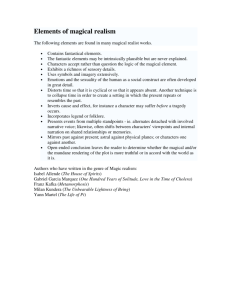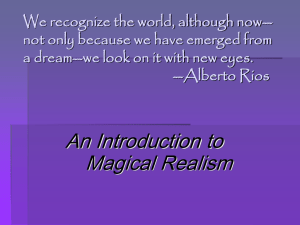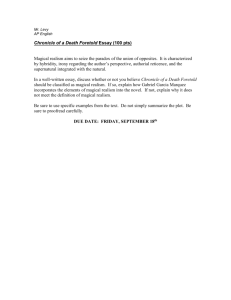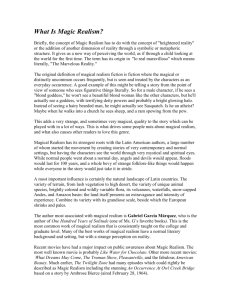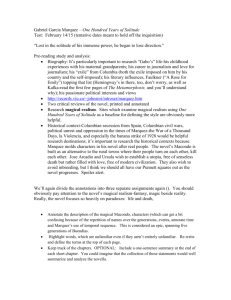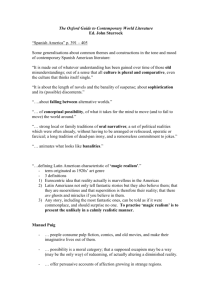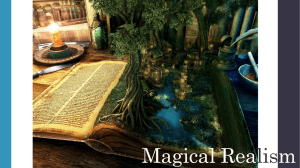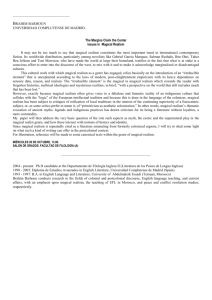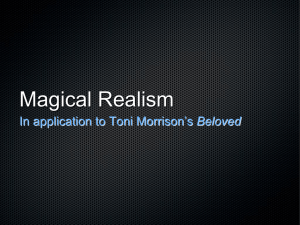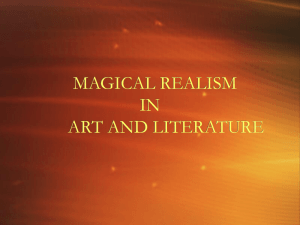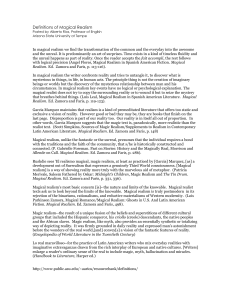Magic Realism Lesson Plan: Marquez, 9th Grade Language Arts
advertisement
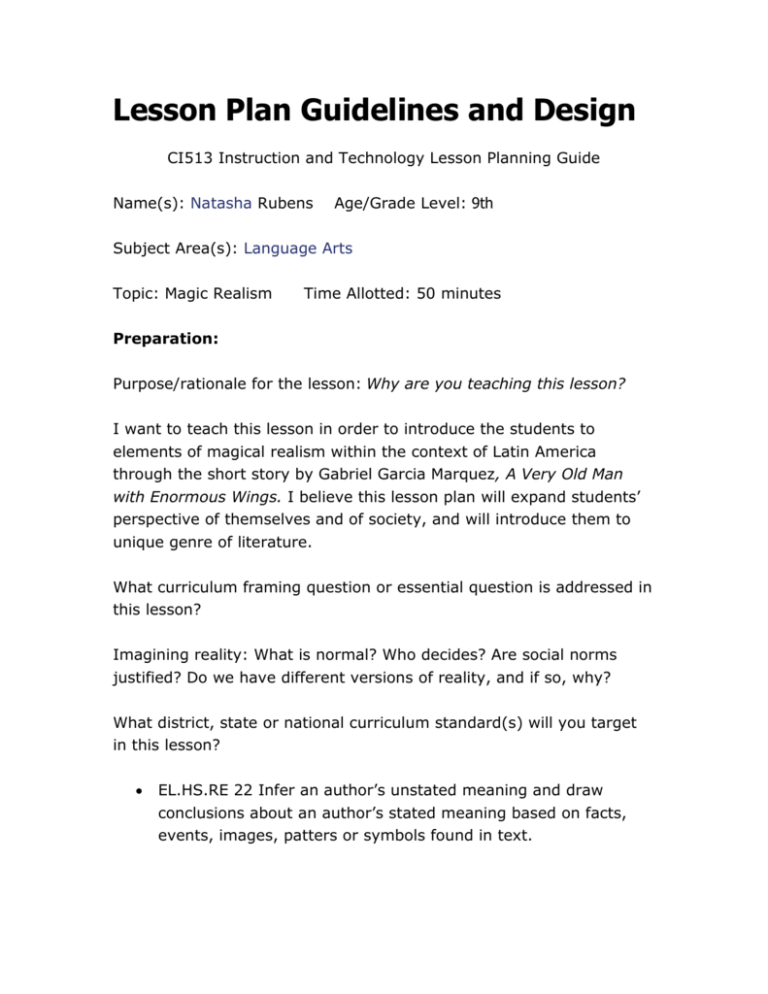
Lesson Plan Guidelines and Design CI513 Instruction and Technology Lesson Planning Guide Name(s): Natasha Rubens Age/Grade Level: 9th Subject Area(s): Language Arts Topic: Magic Realism Time Allotted: 50 minutes Preparation: Purpose/rationale for the lesson: Why are you teaching this lesson? I want to teach this lesson in order to introduce the students to elements of magical realism within the context of Latin America through the short story by Gabriel Garcia Marquez, A Very Old Man with Enormous Wings. I believe this lesson plan will expand students’ perspective of themselves and of society, and will introduce them to unique genre of literature. What curriculum framing question or essential question is addressed in this lesson? Imagining reality: What is normal? Who decides? Are social norms justified? Do we have different versions of reality, and if so, why? What district, state or national curriculum standard(s) will you target in this lesson? EL.HS.RE 22 Infer an author’s unstated meaning and draw conclusions about an author’s stated meaning based on facts, events, images, patters or symbols found in text. EL.HS.RE.24 Analyze implicit relationships, such as couse-andeffect, sequence –time relationships, comparisons, classifications, and generalizations. EL.H.LI.06 Identify themes in literary works, and provide support for interpretations from the text. EL.HS.SL10 Formulate judgements about ideas under discussion, and support those judgements with convincing evidence. Prior Knowledge/Background Information: All students will have read A Very Old Man with Enormous Wings Learning Objectives for the lesson: The students will be able to understand and discuss the elements of magical realism. The students will use their increased cultural awareness, build critical writing skills, develop creating writing skills, strengthen essay writing skills, increase their vocabulary, as well as, build reading skills. The students will demonstrate understanding of magical realism through exercises (handouts). The students will be able to discuss magical realism in regards to its reliance on superstition, myth, and elements of time. They will also be able to contrast magical realism with other genres. They will also examine how cultural differences affect our sense of ‘real’ or ‘magic.’ Key Concept(s): What concepts (related to content and/or process) will students encounter as a result of this lesson? Subjective/cultural nature of reality Normal vs. Magic What we believe is unnatural can instead appear natural to someone else, or perhaps even to ourselves if we were to take time to really look at the spectacle. Key Question(s): What questions/prompts will you build into your lesson plan to foster student engagement and higher order thinking? Is it true that what we may define as magical or mystical could be interpreted as very real to someone else? Materials/Resources Needed: Handout: photocopied short story Handout: Elements + Explanations and Examples of Magical Realism Computer loaded with Office PowerPoint Presentation on Magical Realism + short video on Marquez’s biography Computer-adaptable overhead projector Paper/pans for student free-writes What appropriate use of technology will this lesson employ for teacher? for students? (ex. presentation or publication) Video: A clip from G.G. Marquez’s biography Procedures: Overview of the lesson and time estimate for each component. Include expanded descriptions of what the teacher and students are doing. Hook or Anticipatory Set: Introduction - how will you ‘grab’ students’ attention and get them ‘set’ for learning? Body of the lesson: Major items or activities in the order they will occur. Start the lesson by asking students in class if they believe in magic or if they have seen something magical in their lives. (5 mins) Quick free write: Each student writes his/her own personal definition of “magical realism” and any experience they can think of from his/her own life related to magic and “doubtful” nature of reality. (7 mins) Pair share: Students share free writing experience with a single partner. (5 mins) Students invited to share definitions of stories from pair share partner with the class. (5 mins) PowerPoint Lecture: Begin the introduction to the lesson by giving a short overview of magical realism and Marquez’s biography. Also, to prepare for further discussions it would be helpful to give a short intro to the geography and culture of Latin America using aids such as maps. (5 mins + 3 mins video) Handout: The short story A Very Old Man with Enormous Wings Response + Free Write: The students demonstrate understanding of magical realism through exercises (?) Handouts on elements and examples of magical realism. (10 mins) Large Group Discussion: On the short story and nature of reality (in general… lets philosophize a little!). (10 mins) How do cultural differences affect our sense of ‘real’ or ‘magic’? Discuss the blend of realistic and fantastic details. Does this blend make the story more or less effective? Does it require a different way of reading than other stories you have read that contain no elements of fantasy? Homework assignment: Students will have to think about a one page paper on any topic based around a short story. Extensions/Differentiations: How will you adapt this lesson for students with cultural, linguistic, and cognitive differences? Maybe have a simplified version of the story for ESL students. Also, have it in Spanish as well. Attention to Literacy: How is literacy addressed in this lesson? There will be three main guidelines in the rubric (regarding students’ homework): Evidence and Examples, Transitions, and Grammar and Spelling. Be sure to have clear topics and details.
